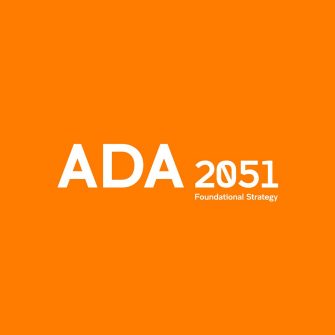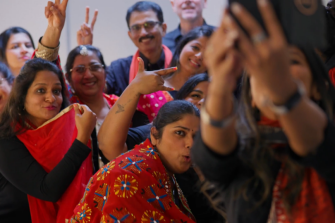Creativity on show at The Annual
The Annual is Australia's largest showcase of graduate art and design, featuring 170 emerging artists, designers and makers from the School of Art & Design.




At UNSW Arts, Design & Architecture, we're focused on progress for all.
The world faces monumental challenges. It always has. But if you look around, progress is everywhere. People are coming together, imagining a better future. From design that advances healthcare, to sustainable cities and equal access to education, the progress we make together can improve people's lives worldwide.
Study with us
We have a diverse range of disciplines where you’ll develop unique and career-ready skills. Together, we’ll turn creativity and critical thinking into real-life solutions.
With us, you’ll challenge and be challenged to push the way you think about people, places and cultures. You’ll thrive in an open, supportive and inclusive community that encourages and celebrates your difference.
Our impact
Upcoming events
Acknowledgement of Country
UNSW Sydney’s Kensington and Paddington campuses are built on Aboriginal Lands.
We pay our respects to the Bidjigal and Gadigal peoples who are the Custodians of these lands. We acknowledge the Aboriginal and Torres Strait Islander peoples, the First Australians, whose lands, winds and waters we all now share, and pay respect to their unique values, and their continuing and enduring cultures which deepen and enrich the life of our nation and communities.
As a community, UNSW Arts, Design & Architecture acknowledges that Aboriginal and Torres Strait Islander peoples have survived and thrived through centuries of systemic injustice, exclusion, and erasure. As a new faculty, it is our priority to develop an Indigenous Strategy that is collaboratively developed, productive and purposeful to affect long-term change in the educational outcomes of Indigenous students and the intellectual and cultural integrity of Indigenous teaching and research across the faculty.
Read more about UNSW’s Indigenous Strategy. Please get in touch to be part of these developments and stay tuned as we share more information about our Indigenous Strategy.
Artwork by Leilani Tallulah Knight, “U going to listen now?”, 2021















